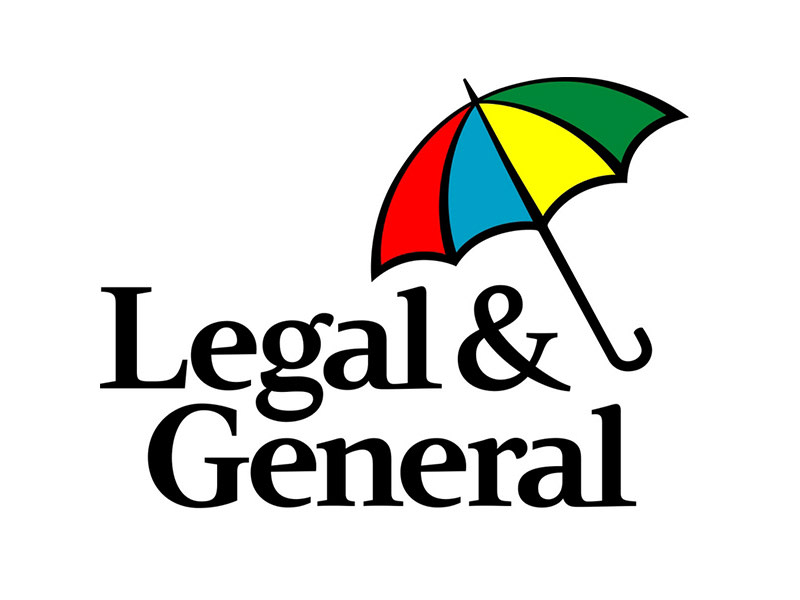Legal & General is one of the UK’s leading providers of passive funds
We think this fund is an excellent option for accessing a range of medium-sized UK companies
It’s a simple, low-cost way to track the FTSE 250 excluding Investment Trusts
This fund features on our Wealth Shortlist of funds chosen by our analysts for their long-term performance potential
How it fits in a portfolio
The Legal & General UK Mid Cap Index fund invests in a range of medium-sized UK companies. These businesses offer greater potential for growth than their larger counterparts but may experience more price volatility, which can add risk. These companies also make more of their money domestically compared to the FTSE 100 Index, which is the UK’s largest 100 companies. By excluding investment trusts from the index, we think the fund offers investors a purer exposure to UK businesses than a broader FTSE 250 Index tracker.
An index tracker fund is one of the simplest ways to invest, and we think this fund could be a great, low-cost starting point for an investment portfolio aiming to deliver long-term growth. It could be a good addition to a global portfolio or could diversify a portfolio focused on larger companies or bonds.
Manager
Legal & General has run index tracker funds for over 30 years and is one of the largest providers of index funds in the UK. That means it’s got the resources and expertise to track indices as closely as possible, and the scale to keep charges to a minimum.
Each index fund at Legal & General has a primary and secondary manager, though in practice the team as a whole helps to manage each fund. Jason Forster is responsible for UK fund management and is the primary manager for this fund. He previously worked on the firm’s index fund management systems before becoming a fund manager in 2002. Konstantins Golovnovs is the secondary manager for this fund. He joined Legal & General’s graduate scheme in 2010 and worked his way up to become a fund manager.
Process
This fund tracks the performance of medium-sized UK companies as measured by the FTSE 250 ex. Investment Trusts Index. It aims to invest in every company in the index and in the same proportion. This is known as full replication. However, for practical reasons and/or to reduce dealing costs, there are times where the smallest positions aren’t included.
The fund invests in roughly 170 companies across a range of sectors. Key sectors include industrials, financials and consumer discretionary, which made up 21.6%, 21.3% and 19.6% of the fund respectively at the end of April 2025. This is determined by the underlying index the fund is tracking.
In any index tracker fund, factors like withholding taxes, dealing commissions and spreads, and the cost of running the fund all drag on performance. To reduce the tracking difference between the fund and the index, the team keep trading to a minimum which helps to reduce costs.
Legal & General cross trades shares internally across all its own funds when there’s an index rebalance. This provides a saving on Stamp Duty, which is a government tax that’s paid on the purchase of UK listed shares. Stamp Duty is one of the biggest contributors to the tracking difference between the fund and the index so trading efficiently like this helps to keep the fund’s performance close to the index.
Legal & General is a conservative tracker fund manager. For example, it doesn’t lend the investments in its index funds like some other companies do.
Culture
Legal & General has developed its passive fund range over the last three decades. The company manages £517bn in tracker funds, allowing it to offer a wide range of index-tracking options.
It’s built a team of experienced passive fund specialists and they’re innovative too. If an index doesn’t exist for a sector they’d like to track, they’ll often work with index providers to create a suitable index for them to track.
The team managing this fund work closely with various risk departments across the business. We believe this provides support and adds challenge where appropriate.
Employees are also encouraged to participate in Legal & General’s share save scheme which should encourage them to be more engaged with the growth of the company. In addition, a portion of fund managers’ bonuses are invested into the funds they manage. By doing this, their interests are further aligned with the investors in the fund.
ESG Integration
Legal & General Investment Management (LGIM) is predominantly a passive investor, but we are impressed with the extent to which they have woven Environmental, Social and Governance (ESG) ESG into its culture. Being a mostly passive fund house hasn’t stopped them being innovative when it comes to ESG. In May 2019, the firm launched its ‘Future World’ range of funds, though this fund isn’t part of that range.
The Future World funds track indices that increase investments in companies that score well on a variety of ESG criteria – from the level of carbon emissions generated, to the number of women on the board and the quality of disclosure on executive pay. They also reduce exposure to companies that score poorly on these measures. The funds also adopt a decarbonisation pathway. This means they’re managed to achieve at least a 7% reduction in carbon emissions per year until 2050.
In 2019, LGIM established its Global Research and Engagement Platform, which brings together representatives from the investment and stewardship teams, in order to unify their engagement efforts. Engagement is conducted in line with the firm’s comprehensive engagement policy. A detailed description of the firm’s engagement and voting activity (including case studies) is available in its annual Active Ownership report.
LGIM’s Investment Stewardship team is responsible for exercising voting rights globally, both for LGIM’s active and index funds. Voting decisions are publicly available through a tool which allows a user to search for any company to find out how LGIM voted, and a detailed rationale is provided for votes against management and abstentions.
Legal & General UK Mid Cap Index is a passive fund designed to track an index that doesn’t specifically integrate ESG analysis or exclude companies in certain industries, like tobacco or weapons.
Cost
The fund has an annual ongoing annual fund charge of 0.14%, but we've secured HL clients an ongoing saving of 0.06%. This means you pay a net ongoing charge of 0.08%. We believe this is great value when compared with other FTSE 250 tracker funds. Our platform charge of up to 0.45% per year also applies, except in the HL Junior ISA, where no platform fee applies.
Performance
Since launch in January 2017, this fund has tracked the FTSE 250 ex Investment Trusts Index well, returning 41.12%* versus 44.14% for the index. As you would expect from an index tracker fund, it’s fallen behind the benchmark over the long term because of the costs involved in running the fund. However, the techniques used by the managers have helped to keep performance tight to the index. Remember past performance isn’t a guide to future returns.
Over the last 12 months, the performance of medium-sized companies in the UK has lagged their larger counterparts. Banks were the best performing sector, and the FTSE 100 Index has exposure to large UK banks which have performed strongly. Higher interest rates have benefited banks as they increase the cost of borrowing, which boosts profits.
Whereas inflation and higher interest rates tend to have a bigger impact on smaller companies compared to larger ones as the valuation of smaller companies is more reliant on expectations of future growth in earnings and cashflows.
With inflation closer to the 2% target, the Bank of England (BoE) lowered interest rates in August 2024 after holding rates at a 16 year high for a full year. Although the BoE has continued to cut rates, it’s taken a gradual approach as inflation remains above target. Interest rates have therefore stayed higher, and for longer, than initially expected, which has been more challenging for small and medium sized companies.
Given Legal & General’s size, experience and expertise running index tracker funds, we expect the fund to continue to track the index closely in the future, though there are no guarantees.
Annual percentage growth
May 20 – May 21 | May 21 – May 22 | May 22 – May 23 | May 23 – May 24 | May 24 – May 25 | |
|---|---|---|---|---|---|
Legal & General UK Mid Cap Index | 36.71% | -8.84% | -5.97% | 15.86% | 5.34% |
FTSE 250 ex Investment Trusts Index | 38.18% | -8.78% | -5.83% | 16.44% | 5.69% |


